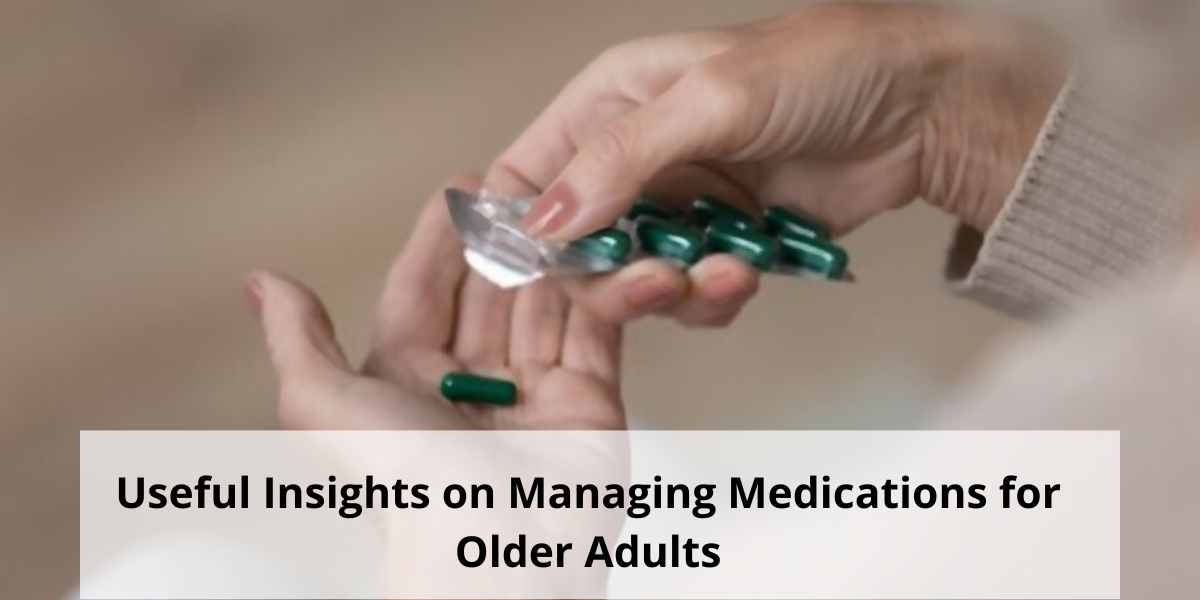Older adults are more likely to take multiple medications, which can increase the risk of drug interactions and side effects. By managing their medicines properly, you as a caregiver can help to reduce these risks and ensure that older adults remain healthy and safe. Also, keep a list of all the medications that older adults take — both prescription and non-prescription to reduce the risk of overmedication. Here are some useful insights on managing medications for older adults:
1. Gather all medications and supplements in one location:
One way to help manage medications for older adults is to gather all of the medications and supplements in one location. Additionally, having all of the medications in one place makes it easier to keep track of expiration dates.
2. Store medication properly:
It is important to make sure that medications are stored in a cool, dry place out of direct sunlight. You should never administer a drug if it looks different from its normal appearance.
3. Keep MAR charts up-to-date:
Whether your care home uses printed or electronic MAR charts, make sure they are up-to-date. MAR charts let everyone involved with that person’s care know what medicines have been taken and when along with necessary information to give or assist with medicines being taken safely. It is important to keep an up-to-date mar chart of older adults’ medications. This MAR chart should include all prescription and over-the-counter medications, as well as any vitamins or supplements that are being taken. For example, if an older adult is seen by a new caregiver, by using the MAR chart he/she can quickly and easily see what medications the resident is taking.
4. Follow 8 Rs of drug administration:
At the time of drug administration, often medication errors occur. So, it is important to follow a proper drug administration. The 8Rs of drug administration are a set of best practices that you should follow to ensure safe and effective medication management. Here are the 8 Rs:
- Right patient
- Right medication
- Right route
- Right dose
- Right patient education
- Right time
- Right to refuse
- Right evaluation
By following these best practices, you can help to ensure that medications are administered safely and effectively. Additionally, the 10 Rs can also help to reduce the risk of medication errors, which can lead to serious harm to the residents.
5. Attend electronic MAR chart training:
If your care home facility uses the electronic MAR system, it is essential that you know how to use it. Electronic MAR chart training helps you to document the medication information of the resident accurately. Knowing how to use features of the electronic MAR system such as taking notes, setting alerts and making monthly reports can make your daily work easy in reducing medication errors while caring for older adults.







